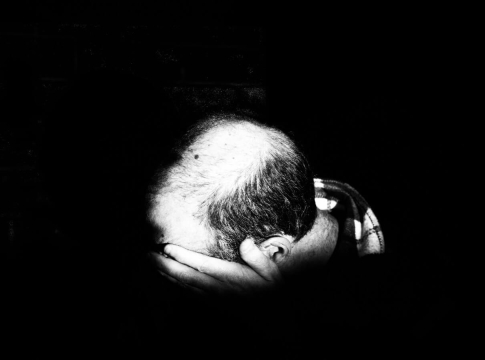
The topic of why Noah cursed his son Ham seems, at first glance, to have little bearing on Christians in the modern era. It seems to be only a historical fact from the account found in the book of Genesis in the Bible concerning Noah and his sons. However, this tale has been used to defend egregious mistreatment of several racial groups of people, most notably Black people. Let’s examine the narrative in more detail to determine which of the assertions made in this Bible passage are true or not.
Some background information
There are some background details that are necessary in order to comprehend the text concerning Noah and his son Ham. According to Genesis, once God made the earth ideal, the first humans rebelled against him. The results of this were terrible. People had turned wicked, and [their wickedness even grew] as time went on.
“Now, violence abounds on earth, and the planet is corrupt in God’s eyes. When God looked down upon the earth, he realized that it was tainted since every human had contaminated the planet. And God said to Noah, “I have decided to wipe out all flesh, for it is through them that violence fills the earth.” Look, I’ll wipe them out together with the earth (Genesis 6:11–13).
All animals and humans were wiped out when God unleashed a deluge of waters on Earth, with the exception of Noah and his family and one pair of all animals (seven pairs of clean animals). God gave Noah the command to construct a unique boat known as the ark, which kept them safe during the deluge and led to their rescue. Noah and his family were the only people on Earth after the deluge. However, it didn’t take long for everything to go wrong once more. That’s where the narrative of Noah cursing his son Ham (or, as we shall see later, cursing the descendants of Ham) comes from.
The Bible text we are talking about
Let’s read the Bible verses in Genesis 9:20-29:
“Noah planted a vineyard and became a man of the earth. After taking a sip of the wine, he passed out in his tent without any clothes on. When Canaan’s father, Ham, noticed that his father was nude, he went outside and told his two brothers. Then Shem and Japheth got a cloth, put it over their shoulders, turned to face their father, and covered his nudeness. They were not aware of their father’s nudity because their faces were turned backward. After discovering what his youngest son had done to him, Noah awoke from his drink and exclaimed,
“Canaan is cursed; he will be a servant of servants to his brothers.”
He also said,
“Happy is Shem’s god, the Lord; and let Canaan be his servant.” May God make Japheth larger, allow him to live in Shem’s tents, and make Canaan his slave.
Noah lived for 350 years after the deluge. After 950 years of life, Noah passed away.
What happened?
There is a lot happening in just a few verses, despite the plot being quite brief. It’s obvious what has happened: Noah is now inebriated and is lying in his tent nude. The story’s main question is: What is his sons’ response to this? Apparently quite differently. Ham tells his brothers when he meets his father. Upon hearing about it, the other two conceal their father so that they are unable to see him in his underwear. To put it another way, they halt this embarrassing scene and demonstrate respect.
So what specifically went wrong for Ham? There are a lot of theories on this because it doesn’t seem like “seeing and telling your brothers” is bad enough to warrant Noah’s curse.
Actually, though, Ham’s lack of respect is evident when we compare his actions to those of his brothers. It was extremely offensive for Ham to see his father in his underwear, even if he happened to stumble across him when he was lying uncovered in his tent. Ham shouldn’t have told “his two brothers outside,” who hadn’t yet seen anything, bringing dishonor onto the entire family. Noah felt completely humiliated by that! It appears likely that Ham shared his father’s inebriation with his brothers by making fun of it.
Ham demonstrated no [respect] for his father, the family’s moral and spiritual leader, by his actions. Because of how significant this was in the past, Ham’s actions were viewed as extremely grave. There are others who believe that this means taking over the family’s leadership, but we cannot be certain.
Who was cursed?
Ham, Noah’s son, is the one who behaved disrespectfully. Instead, Noah curses his grandson after learning of his son’s actions when he wakes up! For what reason is that the case? Upon closer inspection, we discover that the nation that would be descended from Ham’s son Canaan is the target of the curse rather than the son himself. In essence, it is predicted that the offspring of Noah’s other sons will subdue the Canaanites.
It is significant to note that only Canaan is mentioned in the curse—Ham’s other sons Cush, Mizraim, and Put are not. Those three additional sons are, in general, the ancestors of the African peoples, most likely the Ethiopians, Egyptians, and Libyans.
However, Genesis 10:15–18 lists Canaan’s lineage as follows: “Canaan fathered Heth and Sidon, his firstborn, as well as the Jebusites, Amorites, Girgashites, Hivites, Arkites, Sinites, Arvadites, Zemarites, and Hamathites.” Following that, the Canaanite clans split off.These ancestors resided in the present-day regions of Israel, Lebanon, Jordan, and Syria rather than in Africa.
What consequences did this curse have?
A curse uttered by a human being is powerless on its own, to start. [God has the final say over who gets to bless or curse.]
Nevertheless, when the Israelites drove the Canaanites from their land and exterminated them, Noah’s prophecy came to pass (see, for example, Joshua 3:9–10).
However, take note that this occurred “because of the wickedness of these nations,” not because Noah had cursed them and the Israelites were required to carry out the curse (Deuteronomy 9:4-5). According to Genesis 15:16, the Canaanites were not judged until their sin was fully committed. It is crucial to note that these individuals were punished for their equally immoral actions, not because their father had committed a transgression. It seems that they had imitated his moral sloppiness.
Read Genesis 14:18 to see that much more clearly. This passage describes Melchizedek, a Canaanite who was called the “priest of God Most High,” had a cordial connection with Abraham, and is highly regarded in Hebrews 7. That being said, there was no guarantee that a person descended from Canaan would be personally cursed. These individuals were not left out of God’s plan of salvation; rather, it was because of their severe wickedness that God felt compelled to punish them specifically.
Noah’s curse can’t justify slavery
It is completely untrue that Noah’s curse has been invoked to support the enslavement of African Americans. Canaan’s descendants did not reside in Africa, as we have shown. These were the people groups that the Israelites mostly exterminated from Canaan. More importantly, even if God had intended for the Canaanites to be subjugated, this did not give any man the right to do so. God does not command anyone to take Canaanites as slaves in any place in the Bible. Yes, the Israelites did drive them out in the end, but for a different reason and in accordance with God’s clear instructions.
Human obligation is not defined by divine providence. No one may use a curse from antiquity to excuse terrible behavior. The same idea recurs in a number of prophetic writings: although God judges Israel for its sins through foreign kings, this does not justify their brutality. Take the book of Nahum as an example.
To illustrate this argument, allow me to offer one last example: [It was God’s will that Jesus Christ should be crucified, betrayed, and given a death sentence]. However, that did not give anybody the right to turn against or condemn Him: “The Son of Man goes as it is written of Him; but wrath be to that man! According to Matthew 26:24, “It would have been better for that man if he had not been born.”
God does not ask us to judge other people. A Bible passage is abused when it is used to support the enslavement of African people by citing Noah’s curse. The fact that Christians in Europe have done this is a grave disgrace to the history of the European church.





